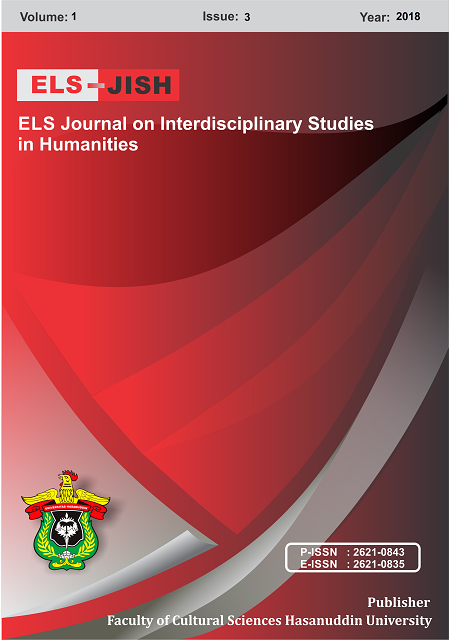The Comparison Of Mandarin Aspects and Indonesian Aspects
DOI:
https://doi.org/10.34050/els-jish.v1i3.4491Keywords:
Mandarin aspect, Indonesian aspect, Comparative analysisAbstract
For the foreigner students, Time aspects (usually can be referred as aspects) in Mandarin is a difficult grammar to be grasped. Indonesian student is no exception. There is only a little bit of similarities exist between Mandarin and Indonesian time aspects. For the example from the semantics point of view: Mandarin “le” and Indonesian “sudah” both of them can modify verbs to indicate an action that have been finished. Mandarin “zhe” and Indonesian “sedang” both of them also modify verbs indicating action that still happen. Mandarin “guo” and Indonesian “pernah” both of them also can modify verbs indicating action that had been happened, etc. Except these similarities, Mandarin and Indonesian time aspects have a lot of differences. For the example, in Mandarin time aspects are usually placed after the verbs, while in Indonesian time aspects placed before the verbs. Mandarin time aspects can only modify verb, while Indonesian can modify verb and adjective. For example, in Mandarin the action is already happened, it can’t use the adverb of frequency “chang-chang”. Eg “ta chang-chang shang xue chi dao le”. We can’t write it like this. But In Indonesian “sudah” can use adverb of frequency “sering” in sentences, eg : “dia sudah sering terlambat”. This sentences in Indonesian is correct. So, this paper will be analyzed the grammar of Mandarin aspect “le, zhe, guo” with Indonesian aspect “sudah, sedang, pernah”, compared both of them, and find the differences between both of them.Downloads
Download data is not yet available.
Downloads
Published
2018-09-25
How to Cite
Septevany, E. (2018). The Comparison Of Mandarin Aspects and Indonesian Aspects. ELS Journal on Interdisciplinary Studies in Humanities, 1(3), 366-374. https://doi.org/10.34050/els-jish.v1i3.4491
Issue
Section
Articles

















